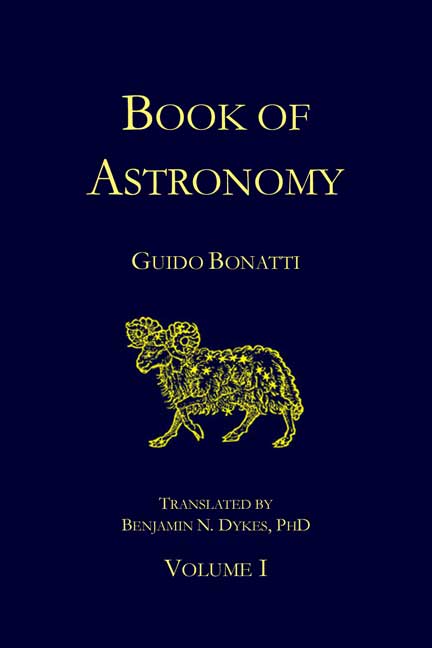Book of Astronomy 1st Edition: Introduction
$4.99
This downloadable PDF is the Introduction to the 1st Edition of the Book of Astronomy (65 slides).
You may also like…
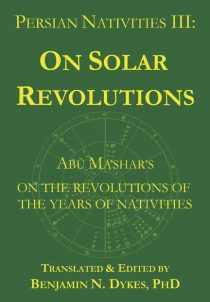
Persian Nativities III: On Solar Revolutions
This third volume of the Persian Nativities series is a translation of the surviving Latin version of Abu Ma’shar’s On the Revolutions of the Years of Nativities. It covers all of the primary predictive techniques: profections, solar revolutions, distributions, transits, and firdaria.
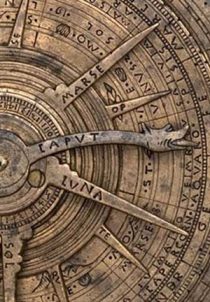
Workshop: Elements of Solar Revolutions
This 2.5-hour workshop shows in great detail how to understand and combine several traditional techniques for analyzing a native's chart from year to year, using solar revolutions (solar returns), profections, and the direction of the Ascendant of the solar revolution. Length 2:34:55, 71MB.
Related Products
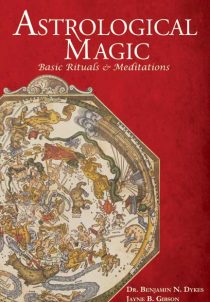
Astrological Magic: Basic Rituals & Meditations
Astrological Magic: Basic Rituals & Meditations is designed for both beginning and experienced ritualists. Written by two veteran ritualists with twenty years of experience apiece, it describes magic in terms of spiritual healing, and is especially written for contemporary astrologers (both traditionalists and modernists) who want a more hands-on, ritualized, and astrologically-based spirituality to complement their chart-reading practices.
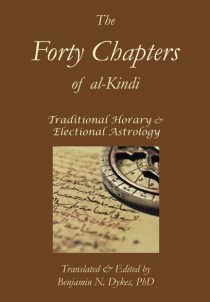
The Forty Chapters of al-Kindi
The famous, “first” Arab philosopher, al-Kindi (ca. 801-870 AD) wrote many instructional letters and works on astrology and the universe. The Forty Chapters is on horary and electional astrology: answering questions and choosing auspicious times to act. It is the second volume in the horary trilogy, preceded by The Search of the Heart and followed by The Book of the Nine Judges.
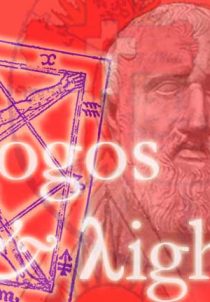
Logos & Light 3: Plato
Volume 3 of the Logos & Light series presents the philosophy of Plato, which was so important to later philosophy and astronomy. Special emphasis is given to the Platonic Forms and how Platonism relates to traditional astrology and magic. See longer description below. Length: 13 hours, 383MB.
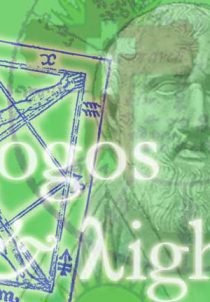
Logos & Light 2: The Presocratics
Volume 2 of the Logos & Light series introduces the “Presocratics,” Greek philosophers prior to Socrates who taught many things important for later astrology, religion, and philosophy, including Pythagoras, Heraclitus, and sacred geometry. See longer description below. Length: 11 hours, 606MB.
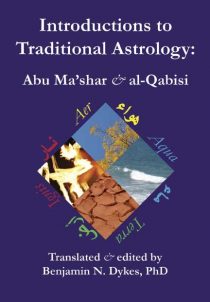
Introductions to Traditional Astrology: Abu Ma’shar & al-Qabisi
Introductions to Traditional Astrology (ITA) is a joint translation of two classic introductory works: Abu Ma’shar’s Abbreviation of the Introduction to Astrology, and al-Qabisi’s Introduction to Astrology. It also includes numerous passages from Abu Ma’shar’s Great Introduction (never before published in English) and other medieval astrologers on interpretating traditional concepts. (425 pages)
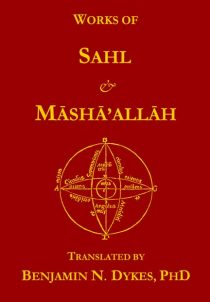
Works of Sahl & Masha’allah
Sahl bin Bishr (Zahel) and Masha’allah were two of the most influential medieval astrologers from the Arabic period. In a new work of 618 pages, Dr. Benjamin Dykes translates 16 of their most important works–many of them for the first time in any modern language! This essential work in medieval astrology includes many charts and lengthy introductory remarks and explanations by the translator.
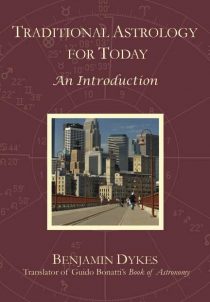
Traditional Astrology for Today: An Introduction
Traditional Astrology for Today is a clear and approachable set of short chapters answering important questions for the contemporary astrologer about many traditional techniques, attitudes, concepts of counseling, and answers modern objections to traditional practice.
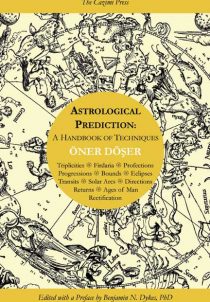
Astrological Prediction: A Handbook of Techniques
This new work by popular Turkish astrologer Öner Döşer embodies an important new trend in astrology: the harmonizing of traditional and modern techniques for contemporary astrologers. The traditional techniques here include: Ptolemy’s Ages of Man, triplicity periods, distributions or directions through the bounds, primary directions, profections, and firdaria. Contemporary techniques include secondary progressions, solar arcs, and transits. Click here for a PDF excerpt.
